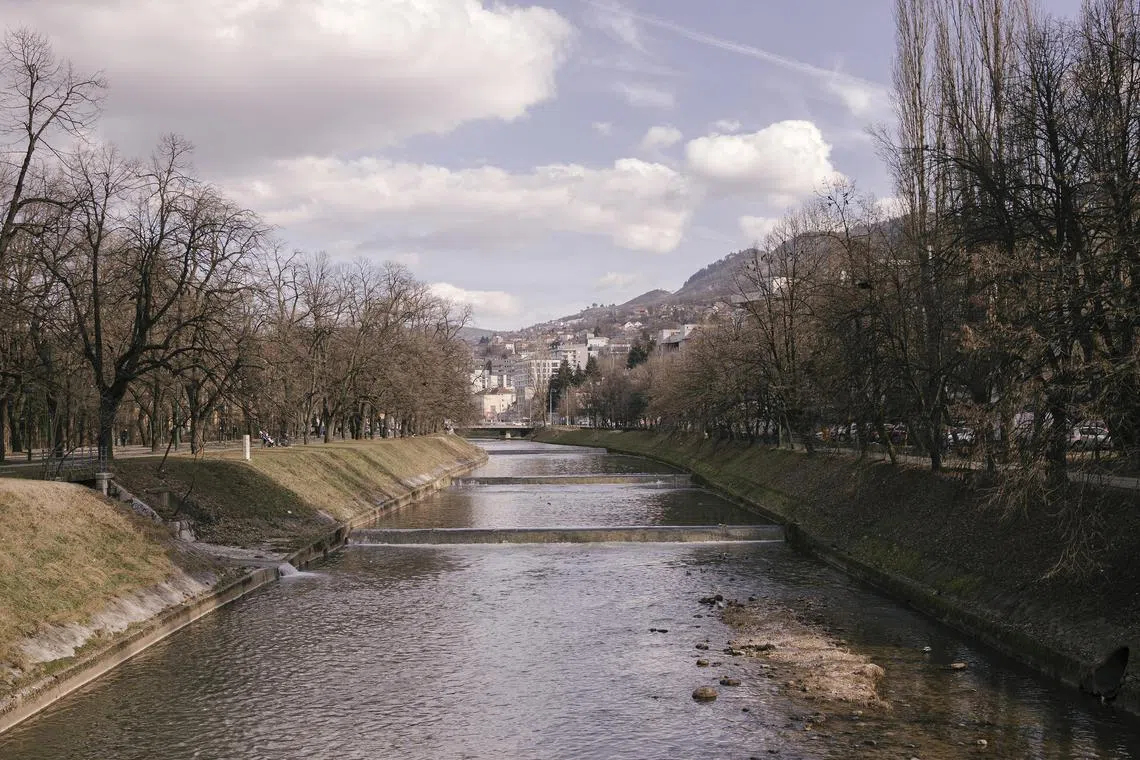Climate change scrambling rivers’ natural ebbs and flows: Study
Sign up now: Get ST's newsletters delivered to your inbox

Disruption in the seasonal variations of river flow could threaten water security, human livelihoods and natural ecosystems.
PHOTO: NEW YORK TIMES
WASHINGTON – The seasonal variations of river flow have been important to humans since the early days of civilisation. The rise and fall of the Nile, for instance, established the three agricultural seasons for ancient Egyptians.
Climate change is disrupting those patterns in the world’s northern high latitudes, a change that could threaten water security, human livelihoods and natural ecosystems, a new study warns.
The study, published on Feb 29 in the journal Science, is the first to analyse the role of climate change in river flow seasonality around the globe while excluding direct human interventions such as reservoir management and water extraction. It found that more than one-fifth of the rivers monitored worldwide showed significant alterations in the seasonal rise and fall in water levels.
“Rising air temperatures are fundamentally altering the natural patterns of river flow,” said Dr Hong Wang, the study’s lead author and a researcher at the University of Leeds in Britain and China’s Southern University of Science and Technology, in a press release. “This is a direct consequence of historical human-induced emissions. This signals a sustained and considerable diminishment of river flow seasonality if air temperatures continue to rise.”
Fluctuations in river flow play a critical role in the predicted cycle of floods and droughts. The researchers say a weakening of these peaks and troughs could put water security at risk. As warmer temperatures deplete snowpacks, for example, earlier melt seasons could create a mismatch between levels of river water and irrigation needs, making it harder for farmers to grow crops.
Also at risk is biodiversity.
“The highs and lows of river flow during the different seasons provide vital cues for the species living in the water,” said Associate Professor Megan Klaar, a co-author of the study from the University of Leeds. “A lot of fish use particular increases in the water as a cue to run to their breeding areas upstream or towards the sea. If they don’t have those cues, they won’t be able to spawn.”
To understand changed patterns at a global scale, the study’s authors combined monthly average measurements from 10,120 river gauging stations between 1965 and 2014 with hydrological simulations. They then used the data to develop a generalized global seasonality index.
Their analysis shows that river flow in latitudes above the 50th parallel north is now far less likely to vary with the seasons than it used to, and that is directly linked to climate change.
Specifically, 40 per cent of the river gauging stations in northern North America experienced a substantial decrease in river flow seasonality, the study says, while 19 per cent of the stations in Europe – mostly in northern Europe, western Russia and the European Alps – reported a notable decline. The contiguous United States also witnessed predominantly decreasing trends of seasonal variations in river flow, except for rivers in the Rocky Mountains and Florida.
Similar results were observed in southern Siberia and central North America, with significant decreases in 32 per cent and 18 per cent of the stations, respectively.
However, a significant increase in seasonal variation occurred in one-quarter of the river gauging stations in south-east Brazil, suggesting that the change to the water cycle is influencing some parts of the world differently.
The shift comes as more than two-thirds of the world’s major rivers have already been altered by human activities, even without taking the impact of climate change into account. Around the world, dam construction interrupts natural river dynamics. Land-use changes, such as draining wetlands for farming, also affect the water balance of ecosystems and the associated river runoff.
The researchers call for stepping up climate adaptation efforts to safeguard freshwater ecosystems.
“We should be very concerned about what the future holds, given accelerating climate change,” said Professor Joseph Holden from the University of Leeds, who co-authored the study. BLOOMBERG


